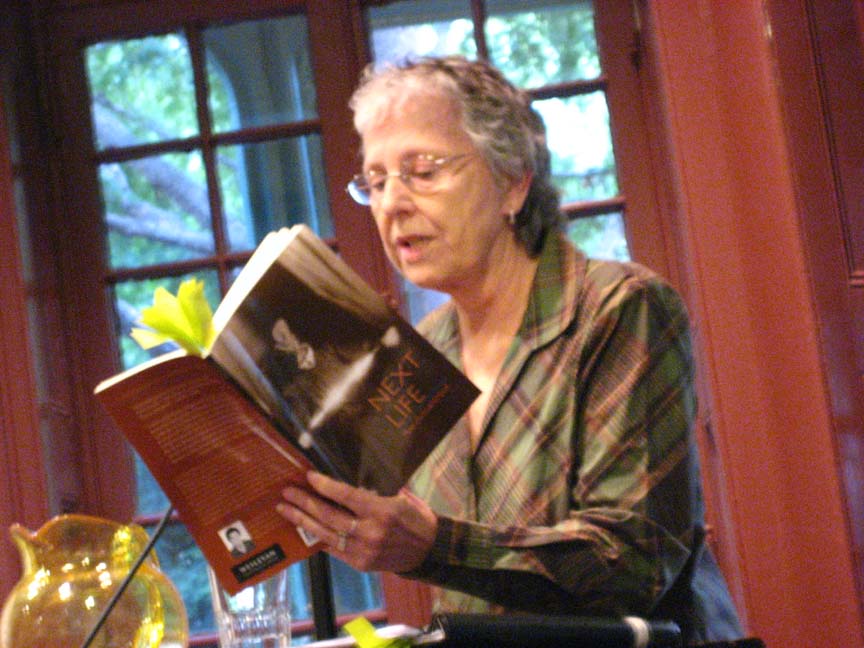 |
| Alice Notley [vimeo] |
Just Under Skin of Left Leg
a dark woman, Camelia Luna
who has Anna Akhmatova's nose
welcomes me to her basement floor dwelling —
I'll help her carry her dead father
I tie him to myself, by the neck . . .
"He must be heavy," she says. He
wakes up and mutters unmemorably.
We called Camelia Cammy (pronounced
Commy) when I was a kid
Virginia my former therapist called me "loony"
"loony poet" — "You were this loony poet."
—————
Heavy with the season. Don't want to give myself
to a new cycle of work and socializing.
Say something pretty: "Dorior, more golden than a door."
Anyone gets tired of carrying fathers.
In my dream Cammy's father
had been a Mafia don. She answered the door
in a blue tulle dress.
—————
"This poem needs your love."
An American might say that
how disgusting
Love an American: "they just love us."
Get some Housing Projects; listen to Rap in them;
turn rightwing electing a maskface in a nice suit;
explode some nuclear bombs.
Americans come to Paris to find out they're Americans
how interesting for them; I mean us
tired of carrying that, carrying that weight
around my neck, who the fuck is this man?
depicted as the weight of your life, can
he be the brunt the cruelty
of that? Yes I carry him, carry him . . .
—————
Out in the forest with an empty pickle jar
waiting to catch a pickle, no a pygmy owl, or
something like that!
if way beneath
my surface, I can find only a diatribe,
shouldn't you listen? Way . . . way below —
where the real story must be.
—————
Marguerite Yourcenar said
she wouldn't be in a book of women
collection of women's writings because
only women would read it, and
they already knew they were angry —
And
anger, she said, is one, one person
a little personal sputter.
But that's that kind of anger, Marguerite —
what about
an anger like Dante's, a whole leaden sky
a church-charged orthodox anger,
creating, in Amer-lingo, a norm for the Great?
That's not so bad, to damn in perpetuity,
if you're Great?
Well, she says,
it's certainly not trivial.
—————
I can't seem to get down into the caves
and the lovely pleasures of the pursuit of the Soul
by Will. What will happen, will I ever find me
in such a way that I'll change, off the page?
—————
I know where Dante might be —
tied round my, Camelia Luna's neck.
"What did he say when he spoke?"
Who cares?
The weight round my neck should die.
—————
'Hi, Mitch.' 'Hi.
Catch anything in that jar?'
'A dead man's ass disguised as light.'
'Aren't you being hard on D? He's like me'
'And me —'
First to the left, then to the right —
No, left, all the way to the left
Take it as far as you can.
—————
Walking with my toes curled as if I were in orgasm;
now look up at the strange sky above soft trees.
I don't want to create any meaning;
I want to kill it . . .
You made meaning; I'm
trying to make life stand still,
long enough so I can exist.
I, truly, am speaking














